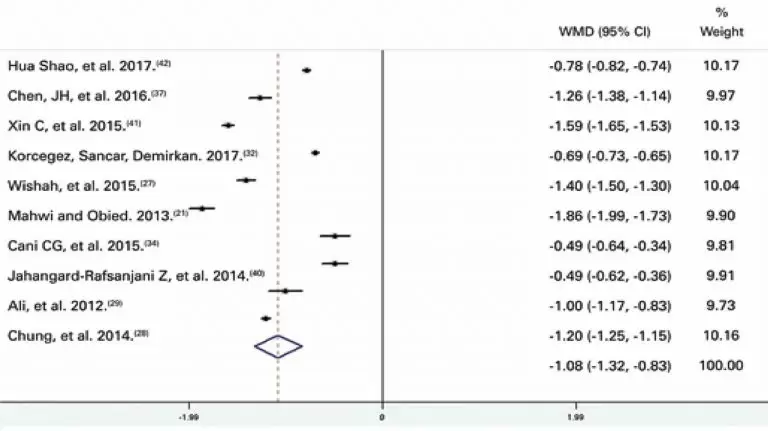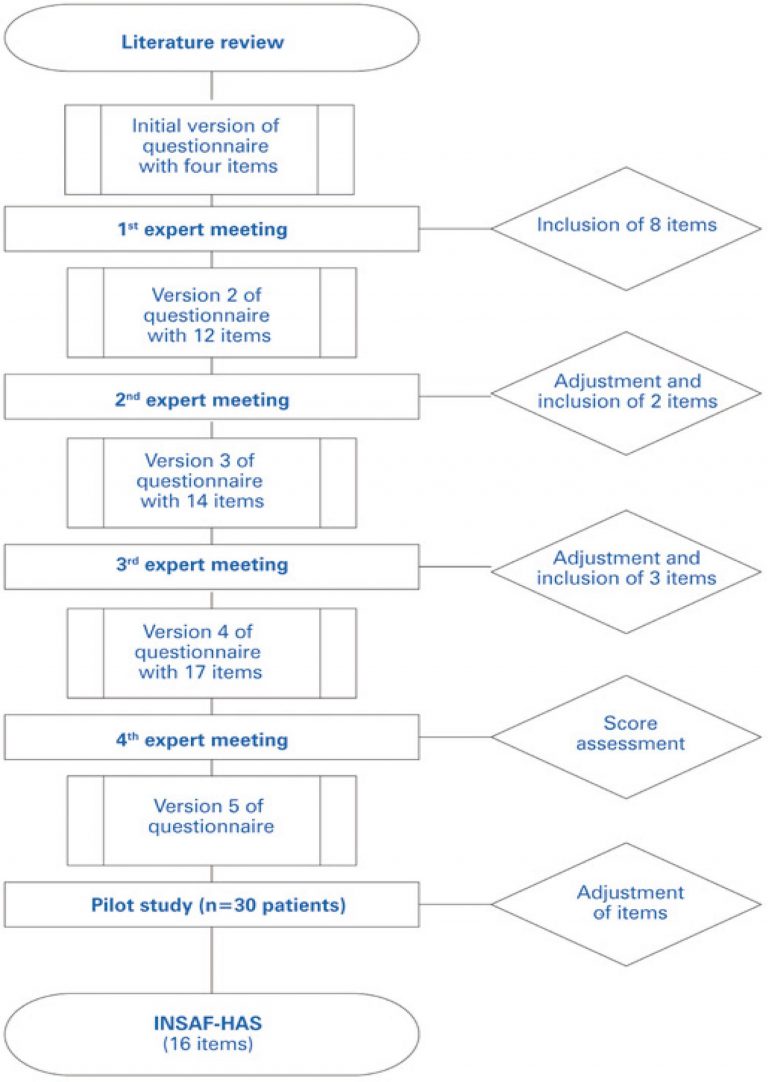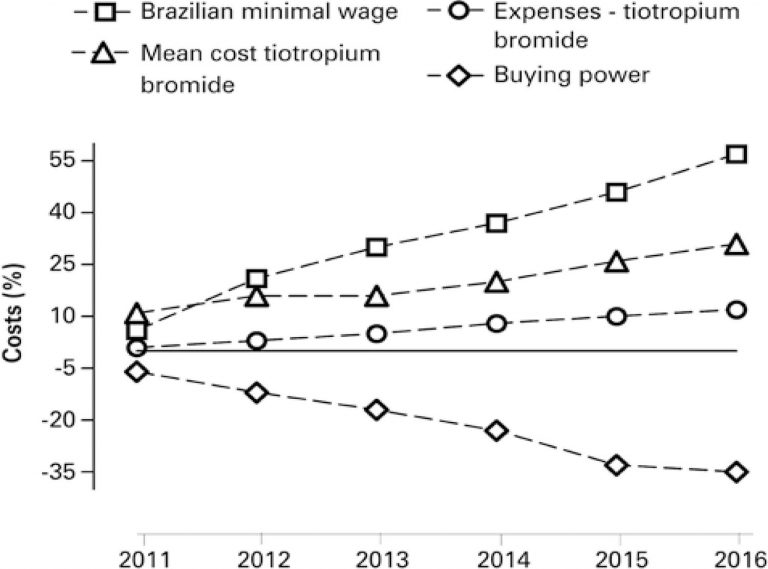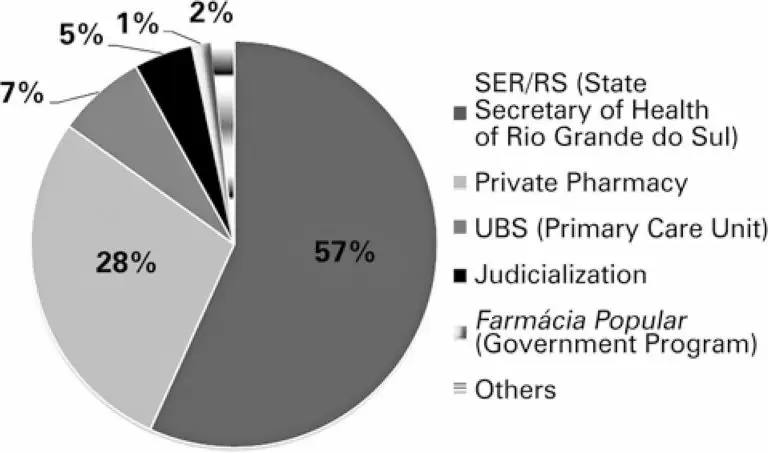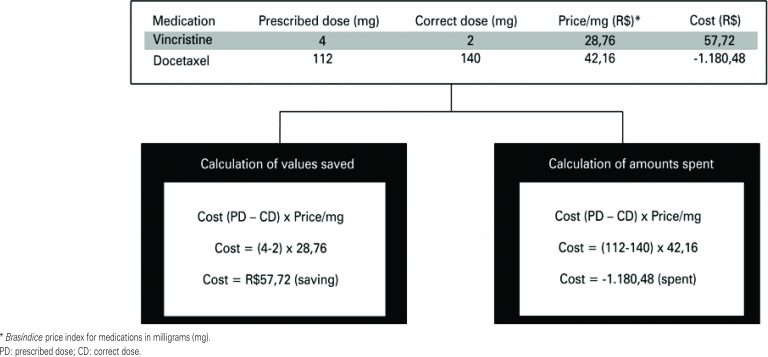29/Mar/2022
Factors associated with the identification of drug therapy problems among older patients in Primary Health Care
einstein (São Paulo). 29/Mar/2022;20:eAO6544.
View Article29/Mar/2022
Factors associated with the identification of drug therapy problems among older patients in Primary Health Care
DOI: 10.31744/einstein_journal/2022AO6544
ABSTRACT Objective To determine the frequency of drug therapy problems among older adults in Primary Health Care, and to analyze the factors associated with their identification in the initial patient assessment, carried out by pharmacists offering medication therapy management services. Methods A cross-sectional study conducted with data from 758 older adults followed up in medication therapy management services in Primary Health Care in the cities of Belo Horizonte, Betim, and Lagoa Santa (MG, Brazil). Univariate and multivariate analyses were performed […]
Keywords: Aged; Medication therapy management; Pharmaceutical services; Polypharmacy; Primary Health Care
06/Aug/2020
Use of drugs for gastrointestinal disorders: evidence from National Survey on Access, Use and Promotion of Rational Use of Medicines
einstein (São Paulo). 06/Aug/2020;18:eAO5314.
View Article06/Aug/2020
Use of drugs for gastrointestinal disorders: evidence from National Survey on Access, Use and Promotion of Rational Use of Medicines
DOI: 10.31744/einstein_journal/2020AO5314
ABSTRACT Objective To estimate the prevalence of use of drugs to treat gastrointestinal disorders, according to demographic, socioeconomic, and health characteristics of the Brazilian population. Methods This is a population-based survey that interviewed individuals residing in cities of the five regions in Brazil. The study sample was composed of 32,348 individuals aged 20 or more years. The profile of use of drugs for gastrointestinal disorders was evaluated considering the variables sex, age, healthcare plan, region, and number of chronic diseases. […]
Keywords: Aged; Drug utilization; Gastrointestinal tract; Health policy; Health Surveys; Patient Medication Knowledge; Pharmaceutical services; Pharmacoepidemiology; Polypharmacy; Proton pump inhibitors
28/Jan/2020
Pharmaceutical care-based interventions in type 2 diabetes mellitus : a systematic review and meta-analysis of randomized clinical trials
DOI: 10.31744/einstein_journal/2020RW4686
ABSTRACT Objective To investigate the impact of pharmaceutical care-based interventions on type 2 diabetes mellitus . Methods PubMed®, Cochrane and Web of Science data bases were searched for randomized controlled clinical trials. Studies evaluating pharmaceutical care-based interventions in type 2 diabetes mellitus published between 2012 and 2017 were included. Glycated hemoglobin was defined as the primary endpoint; blood pressure, triglycerides and cholesterol as secondary endpoints. The random effects model was used in meta-analysis. Results Fifteen trials involving 2,325 participants were […]
Keywords: Diabetes mellitus, type 2; Pharmaceutical services; Pharmacists; Pharmacy service, hospital
20/Dec/2019
Pharmaceutical intervention in the rational use of intravenous omeprazole
DOI: 10.31744/einstein_journal/2020AO4433
ABSTRACT Objective: To describe the pharmaceutical interventions of a vertical clinical pharmacy service to promote the rational use of intravenous omeprazole. Methods: A prospective and descriptive study carried out at a university hospital in the Midwestern Region of Brazil, from November 2014 to May 2015. The service consisted of the analysis of adequacy of the route of administration of omeprazole in relation to the clinical conditions of the patient, as well as the use of the appropriate diluent. Interventions were […]
Keywords: Drug utilization; Infusions, intravenous; Omeprazole; Patient safety; Pharmaceutical services
06/Dec/2019
INSAF-HAS: a tool to select patients with hypertension for pharmaceutical care
DOI: 10.31744/einstein_journal/2020AO4858
ABSTRACT Objective To develop and validate the content of a tool aimed to select patients with hypertension for pharmaceutical care, based on identification of individuals in greater need of attention. Methods The tool was developed and assessed for face and content validity, which was carried out in three stages. Phase I consisted of comprehensive literature review, which prompted the development of the first version of the tool. Phase II consisted of validation by an expert panel. Phase III consisted of […]
Keywords: Antihypertensive agents; Hypertension; Patient selection; Pharmaceutical services; Professional-patient relations; Quality management; Surveys and questionnaires; Triage
24/Sep/2019
Legal demands of the tiotropium bromide for treatment of chronic obstructive pulmonary disease and their financial impact for the State of Paraná, Brazil
DOI: 10.31744/einstein_journal/2020GS4442
ABSTRACT Objective To analyze the legal demands of tiotropium bromide to treat chronic obstructive pulmonary disease. Methods We included secondary data from the pharmaceutical care management systems made available by the Paraná State Drug Center. Results Public interest civil action and ordinary procedures, among others, were the most common used by the patients to obtain the medicine. Two Health Centers in Paraná (Londrina and Umuarama) concentrated more than 50% of the actions. The most common specialty of physicians who prescribed […]
Keywords: Judicial decisions; Pharmaceutical services; Pulmonary disease, chronic obstructive; Tiotropium bromide; Unified Health System
30/Oct/2018
Medications used in pediatric cystic fibrosis population
DOI: 10.31744/einstein_journal/2018AO4212
ABSTRACT Objective To describe the drug utilization profile used by pediatric cystic fibrosis patients. Methods A transversal study comprising the analysis of records and interviews with caregivers of pediatric patient in a reference center of Southern Brazil. We collected information about patients’ clinical condition, medication used and household therapy. Results Out of 78 patients participating in the study, prevailing characteristics were: female, self-declared white color, mutation F508del and countryside resident. Forty-three patients had health monitoring exclusively in the hospital’s outpatient […]
Keywords: Caregivers; Child; Cystic fibrosis; Drug utilization; Pharmaceutical preparations; Pharmaceutical services
15/Jun/2018
Pharmacotherapeutic follow-up in a respiratory intensive care unit: description and analysis of results
einstein (São Paulo). 15/Jun/2018;16(2):eAO4112.
View Article15/Jun/2018
Pharmacotherapeutic follow-up in a respiratory intensive care unit: description and analysis of results
DOI: 10.1590/S1679-45082018AO4112
ABSTRACT Objective: To describe and evaluate the pharmacotherapeutic follow-up by a clinical pharmacist in an intensive care unit. Methods: A descriptive and cross-sectional study carried out from August to October 2016. The data were collected through a form, and pharmacotherapeutic follow-up conducted by a clinical pharmacist at the respiratory intensive care unit of a tertiary hospital. The problems recorded in the prescriptions were quantified, classified and evaluated according to severity; the recommendations made by the pharmacist were analyzed considering the […]
Keywords: Critical care; Drug prescriptions; hospital; Pharmaceutical services; Pharmacists; Pharmacy service
19/Apr/2018
Patient safety and the value of pharmaceutical intervention in a cancer hospital
DOI: 10.1590/S1679-45082018AO4122
ABSTRACT Objective To demonstrate economic impact of pharmaceutical evaluation in detection and prevention of errors in antineoplastic prescriptions. Methods This was an observational and retrospective study performed in a cancer hospital. From July to August 2016 pharmacists checked prescriptions of antineoplastic and adjuvant drugs. Drug-related problems observed were classified and analyzed concerning drug, pharmaceutical intervention, acceptability and characteristic of the error. In case of problem related to dose, we calculated a deviation percentage related with correct dose and value spent […]
Keywords: Antineoplastic agents; Drug prescriptions; Economics, pharmaceutical; Medication errors; Oncology service, hospital; Pharmaceutical services


